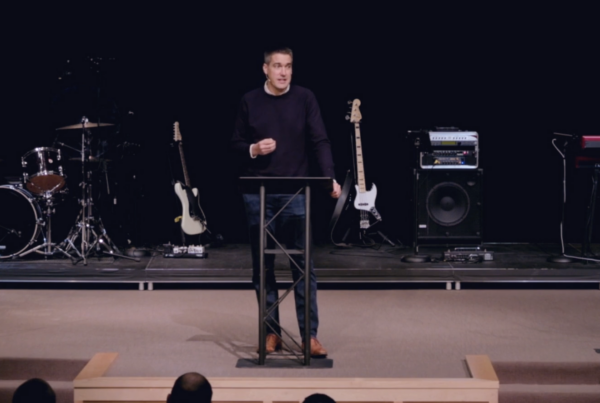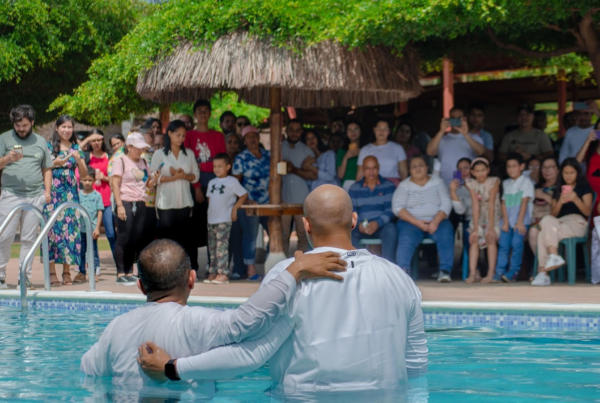Planting and pastoring a church takes courage. Most sane people don’t sign up to take a beating. Most folks don’t charge into a storm. This is what shepherding is like under normal conditions. Yet now we’re in the throes of COVID-19 where many of our sheep are scattered, confused, frustrated, wandering, and longing for hope and direction.
This is a critical time for church leadership. Hirelings will just run when the race gets tough, cower in the face of challenge, and coddle rather than confront. Churches need courageous and persevering pastors to lead through this season, and they’re formed in the field alongside other courageous leaders.
Pastoring is a hands-on applied science, not merely a speculative endeavor or a ministry management position. Those who work in the field develop strong hands and broad backs for lifting heavy loads. They understand how to break hard ground, till the soil, organize the field, plant seeds, water the garden, pull weeds, keep out pests, prune the young, and pick fruit. They’ve felt the scorching heat over many seasons, knowing that heat waves and droughts are “just another day” in the field of ministry.
Aspiring planters and pastors can only become these sorts of men when they’re in the field co-laboring with other pastors. This is why God has called local church pastors to shepherd his flock (Acts 20:28) and train up other men (2 Tim. 2:2) to do likewise. This calling has four implications for training up planters and pastors.
1. Training pastors is the responsibility of all pastors
I serve as CEO of Grimké Seminary where our motto is, “Training pastors and planters in the church, by the church, for the church.” Pastor training isn’t an isolated academic endeavor; it’s local church work. In a family, it’s the parents’ job to raise their children. Similarly, within the church, it’s the pastors’ job to raise up other pastors.
Pastor training isn’t an isolated academic endeavor; it’s local church work.
Too often pastors rely on “ministry-socialism” (waiting for someone else to train their next pastor) instead of “ministry-multiplication” (enjoying the task of raising up children in the faith to be the next leaders). Who is better qualified to identify and develop men from your flock to plant a church than you?
2. Training pastors is a relational ministry of pastors
When I was following God’s call toward pastoral ministry, I was kept at more than an arm’s distance from my pastor. I never really had an opportunity to see behind the veil. I rarely got to simply walk, talk, and watch him navigate the rigors of daily pastoral ministry. For most church members, pastors seem to appear out of nowhere, providing no observable example of maturation to follow in the church.
Conversely, Jesus was with his disciples 24/7 so they could not merely hear the good news, but experience and dialogue about it, while seeing it lived out in his daily life. This is reflected in Paul’s admonitions for churches to follow his example (1 Cor. 11:1). Training up pastors comes at a high personal cost, but its fruit is manifold and sweet.
3. Training pastors is a shared work with other pastors
Training planters and pastors is a collaborative work. It happens through the plurality of elders within a local church and alongside pastors of other faithful churches. God is the only one who can call men into the pastorate. It is, therefore, the complementary job of pastors together to recognize that call and to train those men accordingly.
Our default instinct during COVID-19 is to hunker down and weather the storm, to wait for a more opportune time to get on with our mission. But our mission has never been more urgent.
This requires significant time with other pastors to observe the life and practice of aspiring planters. It means ensuring those being trained are taught by many seasoned practitioners who’ve made disciples in local churches and have borne lasting fruit. Erudite academics without calluses, pontificating planters without proof, and bloggers without buildings won’t produce courageous pastors.
4. Training pastors is God’s work through pastors
Training pastors and planters is ultimately God’s work. He gives us the audacity to pray boldly for him to call out future pastors and planters. He equips us to train faithful men to shepherd his church. God even provides the courage required to ask men to surrender their hopes, dreams, pursuits, careers, homes, security, and anything else that stands in the way of following him. He’s always done it, and he’ll continue to do it until he comes for us.
Our default instinct during COVID-19 is to hunker down and weather the storm, to wait for a more opportune time to get on with our mission. But our mission has never been more urgent. Christ is coming back, and many of our neighbors across the street and around the globe don’t know him.
It’s time for today’s local church pastors to take responsibility for training the pastors and planters of tomorrow. More competent men are needed in the field, and it’s our duty to prepare them. Seasons come and go, but our mission remains. So take courage, and train up.
Editor's Note: Grimké Seminary is an official partner of Acts 29. To learn more, check out this video.











